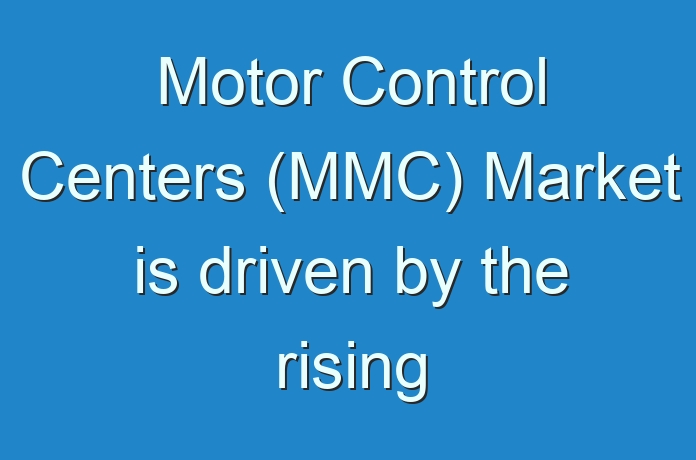
An assembly of motor starters or device overload protectors (such as overload relays) connected by a common source power bus are known as motor control centers (MCCs). The MCC controls several motors which are connected to the power bus. The primary purpose of MCC is to control the distribution of power to electrical motors. MCC panels contain variable frequency drives, program controllers, and metering devices. The National Electrical Manufacturers Association (NEMA) defines MCC as a floor-mounted assembly with one or more vertical sections, horizontal and vertical buses for distribution of power, and multiple combination of motor control units. An MCC is typically made of a steel structure that contains the combination motor control units, wire-ways, internal wiring, and bus bars. The major purpose of an MCC is to function as a power distribution center.
Motor Control Centers Market: Dynamics & Trends
MCCs are physical groups of starters combined in one assembly. This combined starter is a single enclosure comprising the motor starter, fuses, and circuit breaker, and a device for disconnecting power. Push buttons and indicator lights, which are other devices associated with the motor, can also be included. Currently, production and manufacturing units widely accept the usage of MCCs, since they can effectively reduce downtime occurring due to equipment damage. An MCC has integration capability for business networks and manufacturing/production networks together. MCCs have been employed since the 1950s, especially in automobile manufacturing. An MCC requires controlled environment (air-conditioned) depending on the area of application and is generally located adjacent to the machinery controllers. MCCs have longer useable lifespan. They can be used to shut the power of a large number of devices located centrally for maintenance since the MCCs are a power distribution centers with circuit breaker facility,. MCCs require significantly less line-side power wiring and separate controls. This makes them easier to install. MCCs are packed in such a way that they are space-efficient and thus, maintenance work can be carried out centrally. They offer highly efficient fault containment system and electrical component isolators.
Request for a sample:
https://www.transparencymarketresearch.com/sample/sample.php?flag=S&rep_id=28307
Motor Control Centers Market: Segmentation
In terms of application, the MMC market can be segmented into automotive painting plants, electrical and automation panels, laser parts, and sheet metal fabrication plants, HVAC systems, and others. In terms of components, the market can be segmented into overload relays, circuit breakers/fuses, and motor circuit isolators. In terms of voltage range, the motor control centers market can be segmented into low voltage (200-600 V), medium voltage (601-2,299 V), and large voltage (2,300-15,000 V). In terms of region, the global motor control centers market can be segmented into North America, Latin America, Europe, Asia Pacific, and Middle East & Africa.
Motor Control Centers Market: Region-wise Outlook
The global MMC market is driven by the rising requirement for industrial automation, which is essential to increase productivity and reduce overall operational cost. Asia Pacific, in specific, has major manufacturing, industrial plants set up due to low cost. Demand for MCCs is anticipated to increase significantly, as compared to other regions, to have high efficiency.
PreBook Now:
https://www.transparencymarketresearch.com/checkout.php?rep_id=28307<ype=S
Motor Control Centers Market: Key Players
Key players operating in the global Motor Control Centers market include ABB, Siemens AG, Rockwell Automation, Inc., Vidyut Controls India Pvt. Ltd., and GE.
TMR Latest Press Release:





